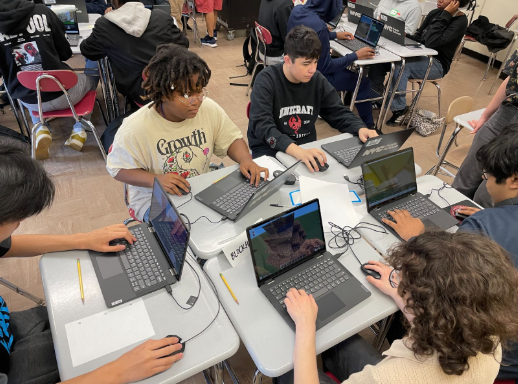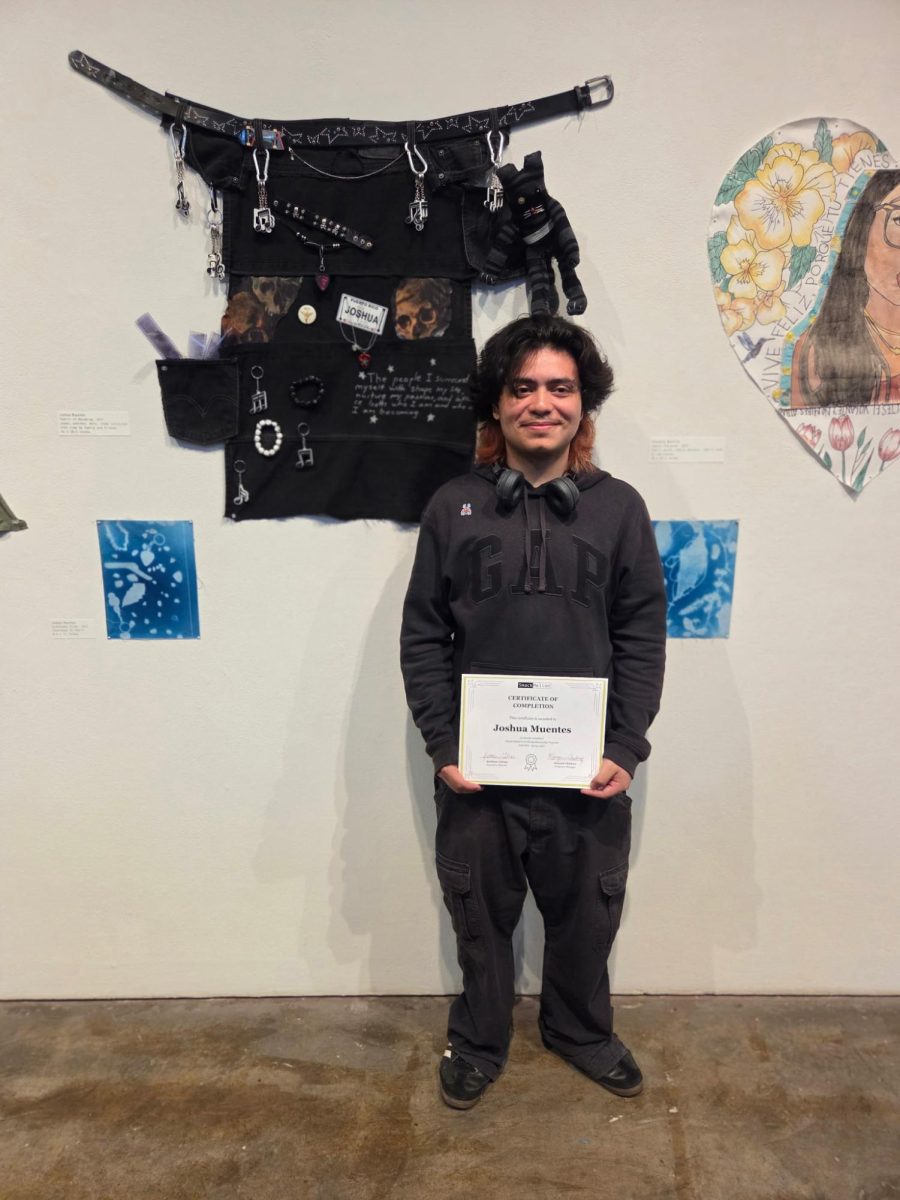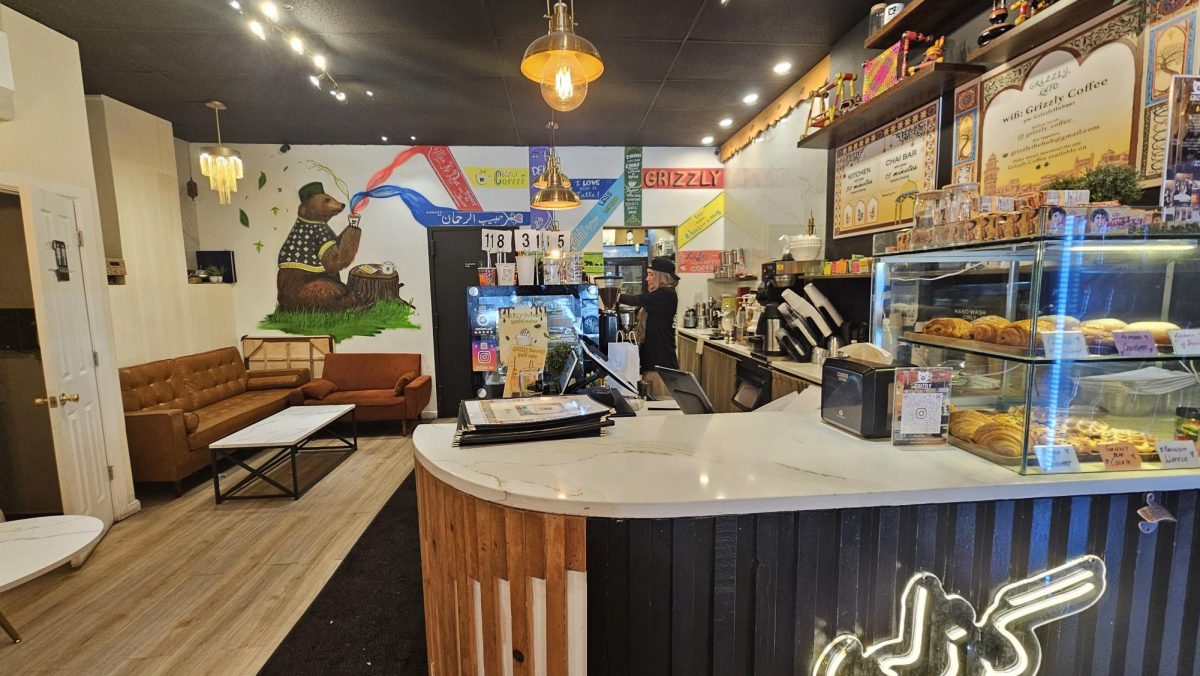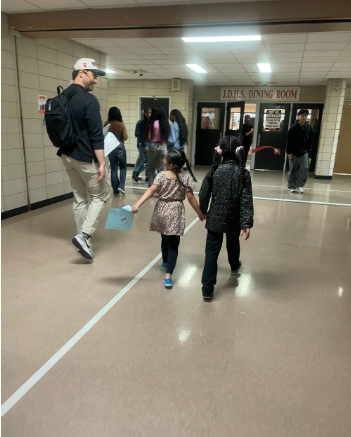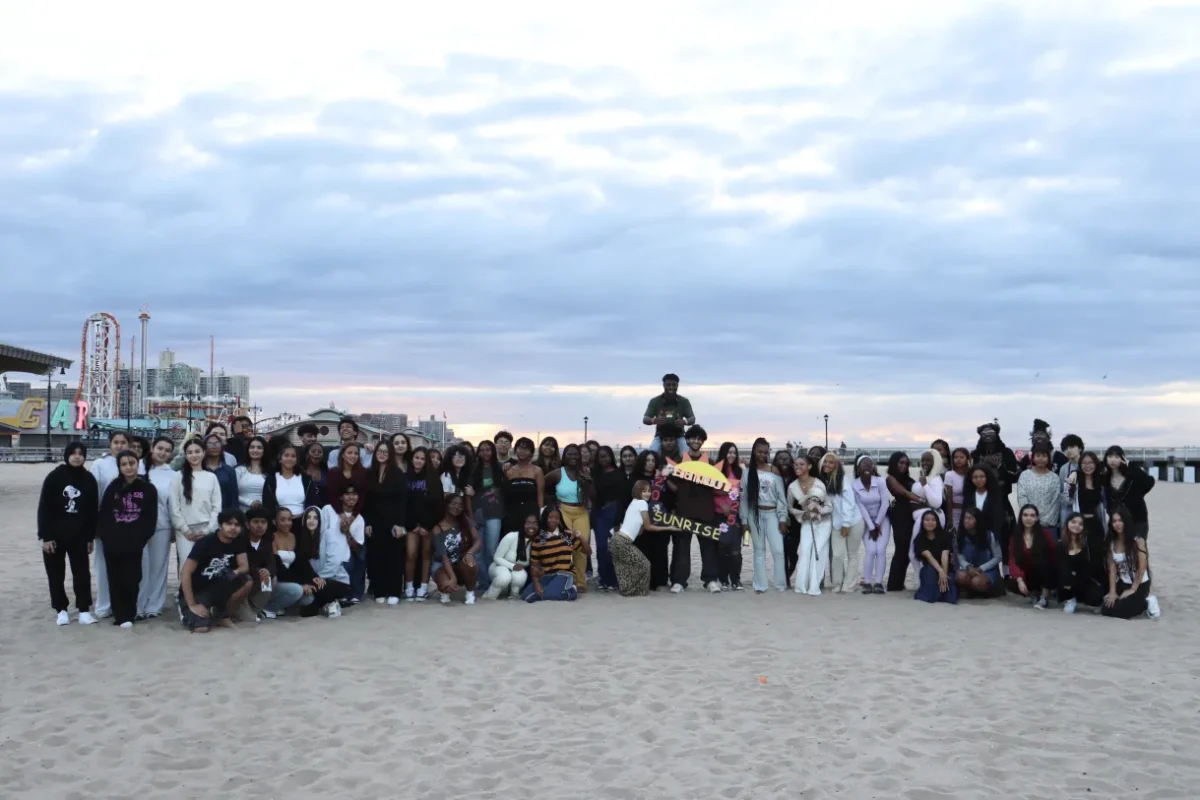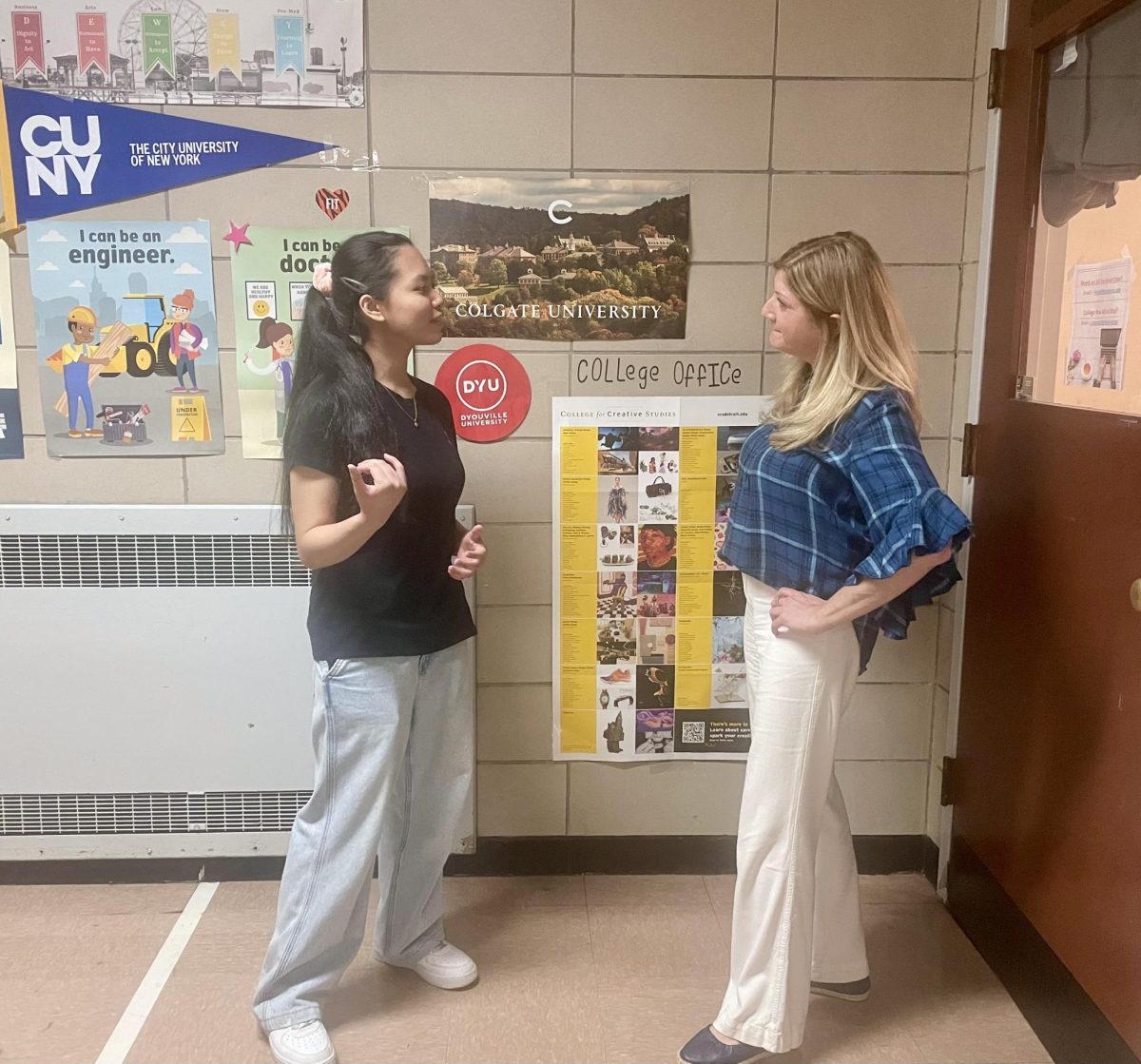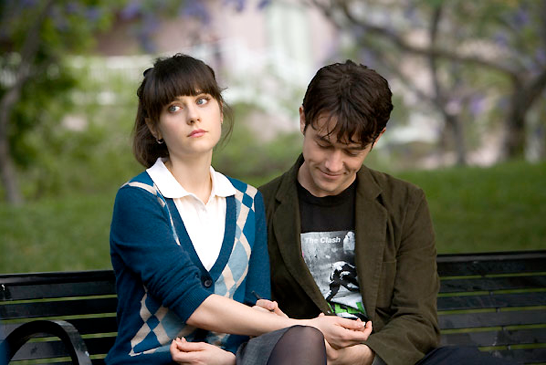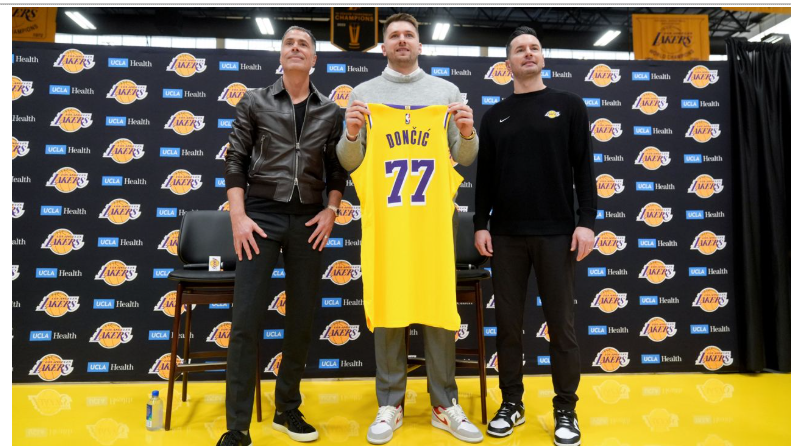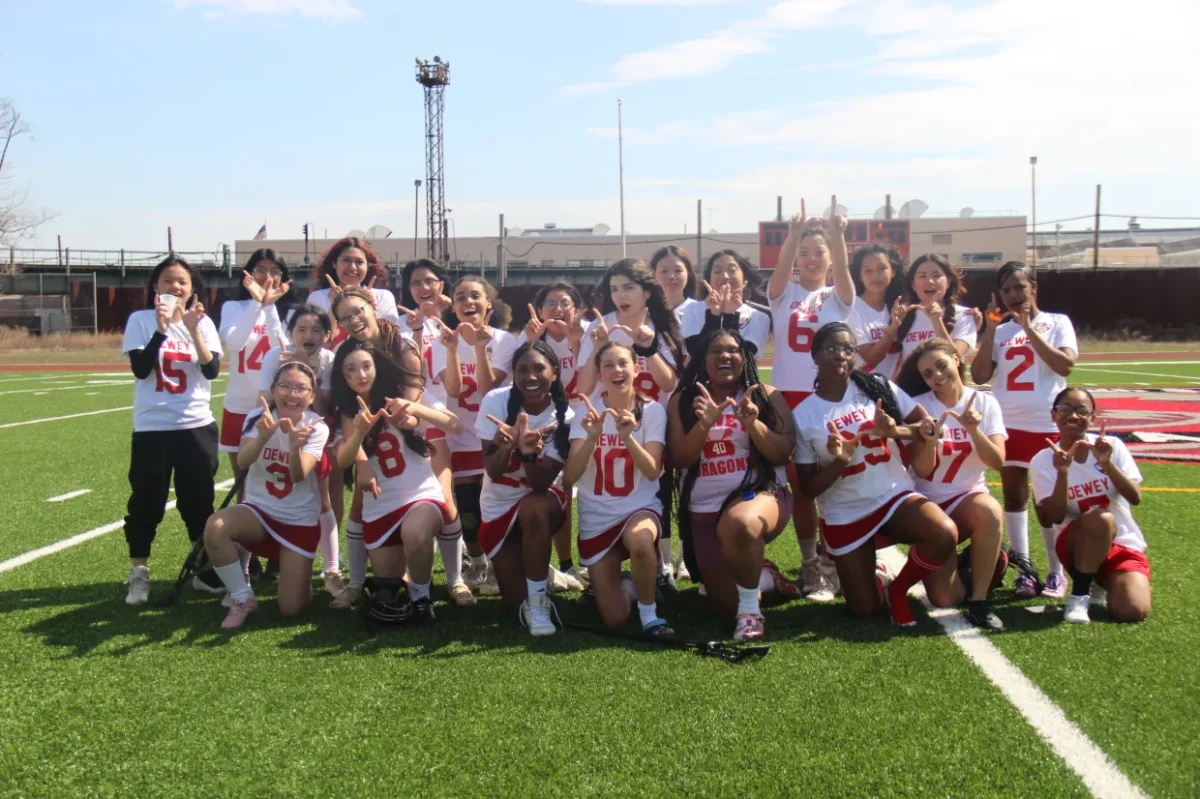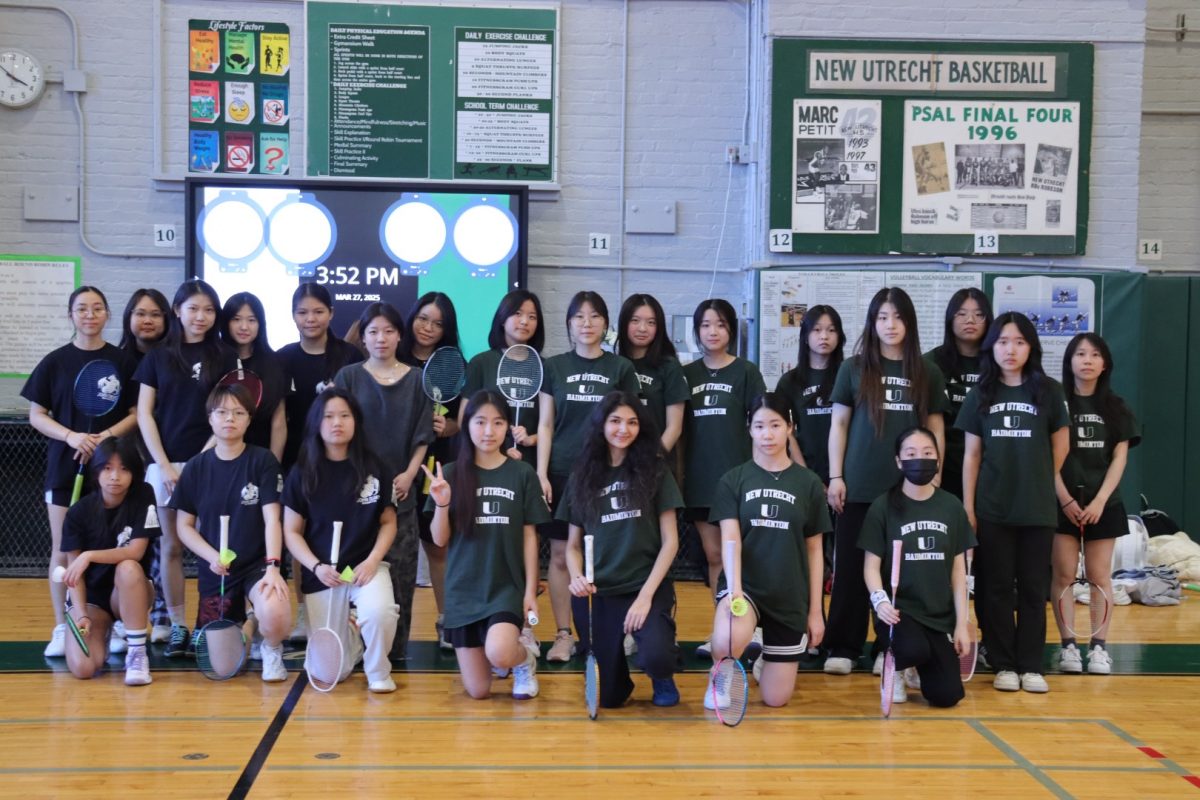The hallways of John Dewey High School are more than just lockers and classroom doors–they’re pathways to futures being shaped with each passing semester. High school marks an important transition period in life, and its experiences have a significant and lasting impact on individuals. Grades, extracurriculars, and relationships during high school can shape future opportunities and life paths.
While high school is a significant period in a person’s life, it can be a challenging time as academic ambitions, social dynamics, and personal identity collide. It is often difficult to navigate through these challenges while experiencing them, leading to feelings of frustration and isolation. As seniors at John Dewey High School prepare to don caps and gowns, they reflect on their high school experiences and offer advice to underclassmen still navigating the complex terrain between childhood and adulthood.
“The biggest lesson that I learned during my time in high school is that you have to do it for yourself–no one is going to do it for you,” said Alliayah Mathurin, a senior at John Dewey High School. “I believe that no one can execute my idea better than me, so I take initiative to do it all the time. But then it also makes group work a little hard because I don’t trust people to meet my standards.
“I think it’s about finding the perfect balance between doing it yourself and working with people,” Mathurin added. “But beyond that, closed mouths never get fed, so you have to always advocate for yourself, especially as we’re going to leave, because no one’s going to do it for you.”
For many seniors, one of the most valuable lessons learned has been the importance of personal responsibility and self-advocacy. Self-advocacy is important since it empowers individuals to take initiative and communicate their needs, rather than passively relying on others. While collaboration is essential and beneficial, there is a limit to how much one can be dependent because of the reality that awaits after high school.
“As a freshman, I wish I knew the quote ‘You shouldn’t spend your life finding yourself–you should spend it creating yourself,’ because you have control of everything and you can become the person that you want to be,” Mathurin said. “Every day is a new day to be a better version than you were yesterday.
“I came from a school with uniforms, so I experienced a lot with fashion–my eyebrows were different colors–and I tested out different friend groups,” Mathurin added. “I had a group that adopted me, but now we don’t talk. I kept up with saying ‘Hi,’ but now we just pass by each other in the hallways. It’s natural for people to grow apart–they were nice, but then I had to find my real niche. There were already established friend groups. You meet someone, they introduce you to others, then you create a friend group. It starts with one person, then goes on from there.”

Alliayah Mathurin organizing Senior Sunrise 2025.
Beyond academic success, high school serves as a crucial period for self-discovery and personal growth. This journey of self-creation often involves experimentation and change. Growth sometimes means outgrowing certain relationships while forming new ones.
“It’s about finding where you fit in, not making things fit for you,” said Helena Calixte, a senior at John Dewey High School. “I’m very grateful to go to a big school like John Dewey High School with over 25 clubs–you’ll find a place that fits you.
“I’m happy to have the freedom here. If you don’t find something for you, you can create it,” Calixte added. “For example, the Christian Seekers club was newly created and it started because some students wanted something for themselves. You don’t have to modify yourself to fit in.”
One of the most challenging aspects of high school can be navigating social dynamics and finding where one belongs. The big question is, how do students persist when they often feel hopeless with increasing responsibilities?
“At first I didn’t manage my time well. Junior year was my breaking point–I struggled with everything I did,” Calixte said. “I had two legal internships, played two seasonal sports, and took on a lot of responsibilities that led to me being student body president. I struggled a lot, but the key is finding mentors.
“I was able to find myself as a person because of the things Mr. Pusz was able to help me with,” Calixte added. “Mentors taught me how to deal with stress when there was too much I couldn’t handle.”
Building these relationships requires persistence and authenticity, even when teachers seem intimidating at first. The foundation of strong teacher-student relationships often begins with simple, genuine interactions.
“Most of it is just natural–coming to class saying ‘Hey’ and ‘Good morning.’ After classes, if you have questions, you talk to them,” Mathurin said. “Teachers like to share about their personal lives in class, and if you share yours, it evolves into general things that are natural. It starts with a ‘Hi.’
“For example, Pusz acts difficult but he’s not difficult, he’s a jokester,” Mathurin added. “He would say things like, ‘If you actually make it to graduation,’ because I was late to his first period every day. If you start on a bad foot, you start a bad relationship. Just bother them and ask questions. I waved to Pusz in the hall consistently.”
These connections extend beyond graduation and can provide valuable support throughout college and beyond.
“Building genuine connections with your teachers is important,” Calixte said. “After high school, you can maintain good relationships. Some teachers I depend on, and I know I can reach out to them in college, as well as classmates.”
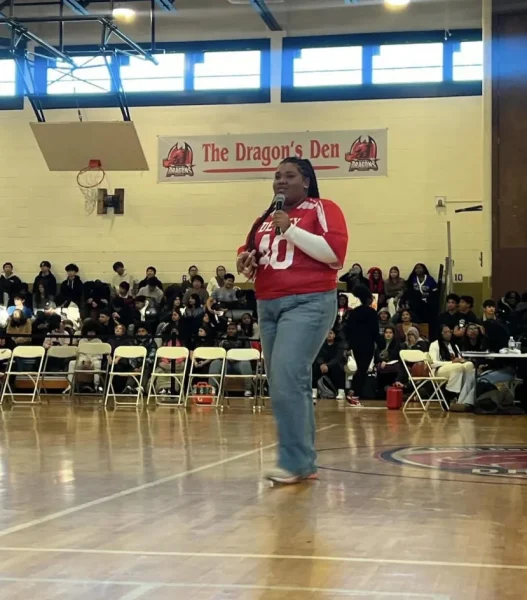
High school friendships play a transformative role in personal development. For many students, these relationships become a source of growth, support, and lasting connection.
“Friendships are very important in high school. I’m a social person, and if I didn’t make the friends I have now, I’d be a shell of a person,” said Mathurin. “When I came here, I didn’t have friends. I was quiet and kept to myself. I didn’t join anything–I was new for two months. I started making friends when I joined soccer and lacrosse. Friends push you to do things you never thought you’d do. Maintaining friendships is easy now, but it will be hard when you go to college. Interact with them as much as possible.
“I’m a bad texter on weekends. I’ll forget to text back and respond in my head. I don’t entertain conversations every day,” Mathurin added. “It’s normal for people to grow apart. We’re floating through life, and people can be important at one time, then they can become a floating orb. Everything good is temporary–some people are meant to be around longer than others. It shouldn’t be bad to grow apart. At the end of the day, we don’t fit into everyone’s daily lives. We can find time, but if there is no time, don’t force the connection.”
Maintaining friendships requires understanding that relationships naturally evolve. The unique nature of high school friendships makes them particularly special.
“One thing I’ll miss about high school is definitely all of the bonds and friendships I’ve formed,” said Vivian Huang, a senior at John Dewey High School. “I feel as if high school is really somewhat the last tightly knitted environment for people to have to closely engage with others in order to get by.
“With relatively a lot of classes with the same faces, constantly passing by familiar people, the circumstances really just push you to try and bond with others,” Huang added. “It’s one thing that I’ll miss a lot since friendships during this period won’t ever feel as artificial as those made within a future workplace.”
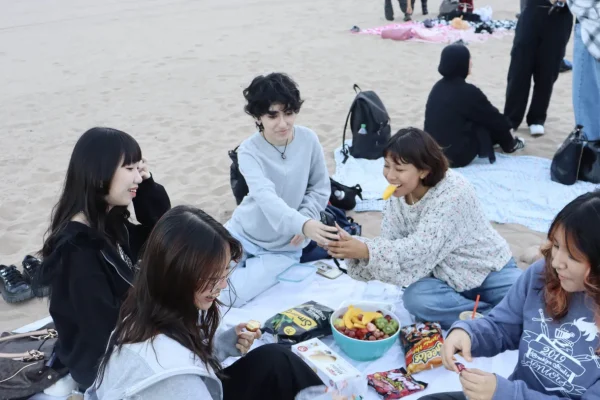
When friendships face difficulties, seniors have learned the importance of self-reflection while also recognizing that not all relationships are meant to last.
“I recently wrote a journal entry about this–about how everything doesn’t have to be your fault,” Mathurin said. “Some people aren’t for you. You don’t always have to be doing something wrong. It’s beneficial to ask yourself what you did wrong and analyze who you are to become a better person.
“But it’s hurtful when you keep thinking about it because you wonder why you’re always the problem,” Mathurin added. “You always ask yourself, ‘Where did it go wrong?’ Even if you don’t think you did anything wrong, you have to look at their side. At least once, say you’re sorry. If you think you did nothing wrong, then you can defend how you didn’t mean to hurt them. Saying sorry isn’t an act of giving up–it’s being a good person and acknowledging how your actions made them feel. It’s natural for friends to grow apart.”
When relationships aren’t working, communication becomes essential.
“I’d say communicate with them if the friendship isn’t working,” Calixte said. “You’ll have to communicate what went wrong. Sometimes you don’t even have to explain yourself—just move away from what isn’t helping you grow as a person.”
As graduation approaches, many seniors grapple with anxiety about leaving the familiar structure of high school behind. The transition represents both excitement and uncertainty.
“There’s the security of the unknown. In life after high school, we are expected to already know what you’re doing and what the next step is,” Calixte said. “High school allows you to be confused and gives you the freedom to find yourself. There’s constant support in high school.
“In life after high school, everything is on your own. There’s no safety net,” Calixte added. “Being able to make mistakes freely and the lack of anxiousness that comes with that. High school is free–you have a schedule. But in college or whatever you choose after high school, you have to decide what to do next. There’s the pain of figuring out if it’s right, and if you didn’t make the right choice, you have to suffer a lot of consequences. High school encourages mistakes.”
Embracing mistakes at this time of youth is a crucial aspect of fostering a growing and resilient mindset. As these seniors prepare to leave John Dewey High School, they offer heartfelt advice to those who will continue walking these hallways.
“You’re only ever as young as you are today, so today do everything that you want to do because tomorrow you don’t know what is promised,” Mathurin said. “Tomorrow is a new day—take tomorrow to be a better version of what you were yesterday. Yesterday you had this routine, but tomorrow, be extra and do something new.”
The message is clear: embrace the present while preparing for the future.
“Live life. Experiment with yourself. Do not waste any day that goes by because you can’t live that over,” Calixte said. “Wake up every day making it better than yesterday. Look at the future with excitement and gratitude. Live in the present because tomorrow isn’t guaranteed. At some point, you’ll be lying in bed and not be able to walk or do anything, so don’t live with regrets and be satisfied that you tried and did everything.”
“Your assignments may have deadlines but outside of just purely academics, stop pressuring yourself into believing that you’ll never have enough time to experience,” Huang said. “High school is just purely one chapter of your life and so many teens out there as well need to realize it. Utilize the opportunities that have been given to you, socialize, and don’t constantly weep over a scary and unrealistic future set up for yourself.”
As the Class of 2025 prepares to turn their tassels and step into the next chapter of their lives, their wisdom serves as a roadmap for current students navigating their own high school journey. Their experiences are reminders that while high school may be temporary, the lessons learned and relationships formed can last a lifetime. The hallways of John Dewey High School will continue to echo with new voices and new stories, but the fundamental truths these seniors have shared–about self-advocacy, authentic relationships, personal growth, and living fully in the moment–will remain timeless guides for future generations of students.

